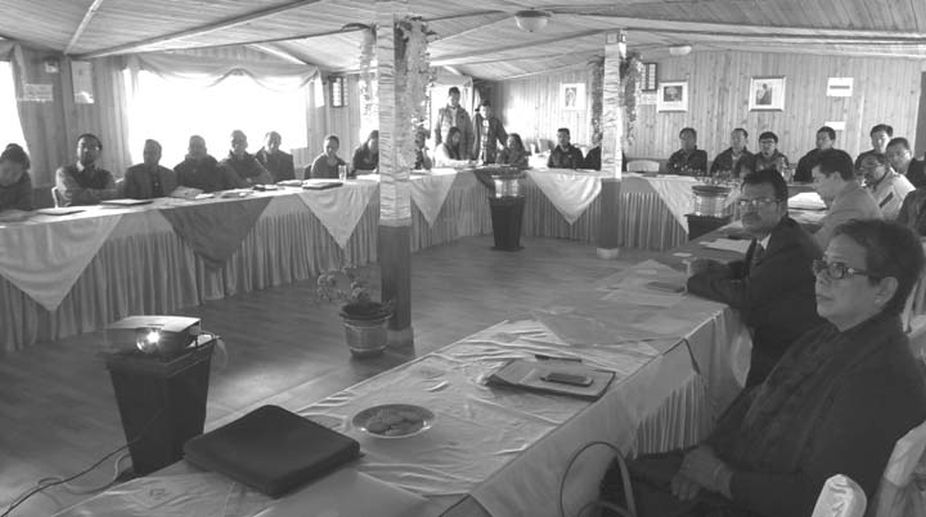Climate costs
As the relentless march of climate change continues to reshape our world, the looming threat to residential property is becoming increasingly apparent.

Darjeeling climate meet
Advocating a separate policy for hill states and districts in the country and pressuring both the state and the central governments, a roundtable conference here on Friday focused on how people have adapted to climate change in areas related to forest, disaster risk reduction, agriculture and water.
The programme titled ‘Understanding Mountain People’s Approach and Practices to Combating Climate Change in the Indian Himalayan Region: Research to Renewal and Reforms’ is mainly a project being undertaken by a group called the Integrated Mountain Initiative (IMI), which has been approved by the Ministry of Environment, Forest and Climate Change (MoEF&CC) under another programme called the ‘National Mission on Himalayan Studies.’
The conference was organized by their regional chapter, the Darjeeling Himalayan Initiative. “We are working to come out with a compendium of climate change adaptation in various livelihoods in 10 different states and the two districts of Darjeeling and Kalimpong. We are trying to influence policy making for the mountains with the IMI being an advocacy group. Policy making in India, along with the schemes, are good, but the people living in Delhi do not know the ground reality of places like Arunachal Pradesh or Darjeeling because of the remoteness of the areas. Those who live in the mountains know the ground reality, so we are trying to create an eco-system among ourselves where we meet and discuss the state of different things like agriculture, water, forest and disaster,” IMI secretary Fantry Mein said.
Advertisement
“We are trying to advocate policies that are tailor made for the mountains,” she added. Maintaining that they have formed an 11-member research team for all this, she added, “We have been able to impress upon the need for policy change for the mountains with the MoEF&CC making a draft policy about two years back, which may come out soon.”
IMI is basically a civil society formed in 2011 and consisting of members from different walks of life, including bureaucrats, politicians, nongovernment organizations, scientists and academicians.
During discussions on Friday, participants put forth ideas like water being channelled from the various springs or questioning whether dried springs could be revived.
Also, the way people have adapted to water scarcity, like buying water and indulging in rainwater harvesting, were some of the topics discussed.
With water scarcity being a big problem in the Hills, some of them also said that many farmers were leaving rice cultivation and were branching out to ginger and other cash crops.
Examples were given on people adapting to growing kiwi and large cardamom instead of oranges, which are plagued with diseases.
“Climate change has affected various things, but the way to deal with it is through adaptation and not mitigation. We should try and find ways and means to adapt as climate change is a phenomenon which cannot be stopped,” said the IMI secretary.
On the other hand, DHI president Praful Rao said, “Each of 10 hill states have their own chapter of the IMI with our organization being the chapter here. All the other mountain states like Sikkim have their own chapters. In the year 2011 and 2012, we worked as part of the IMI chapter of Sikkim, but we formed our own in 2013. “
Advertisement